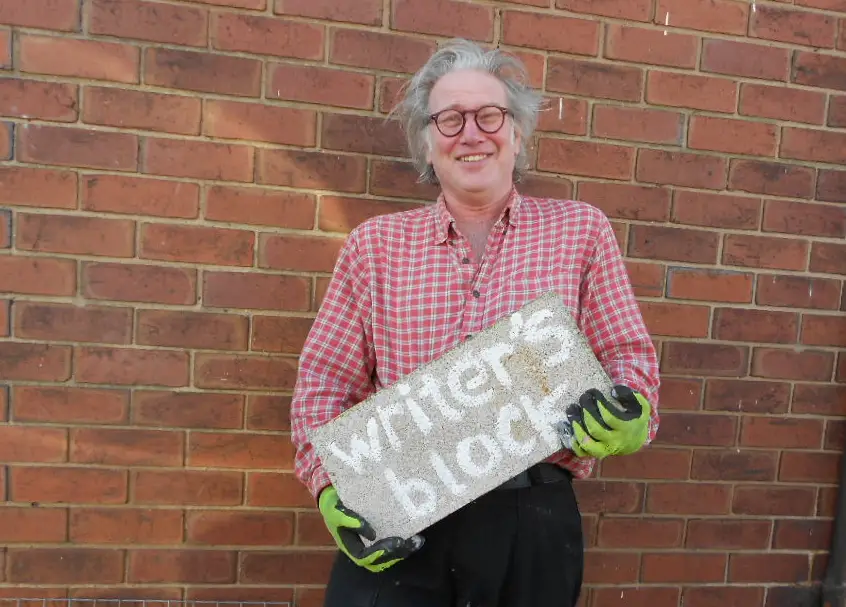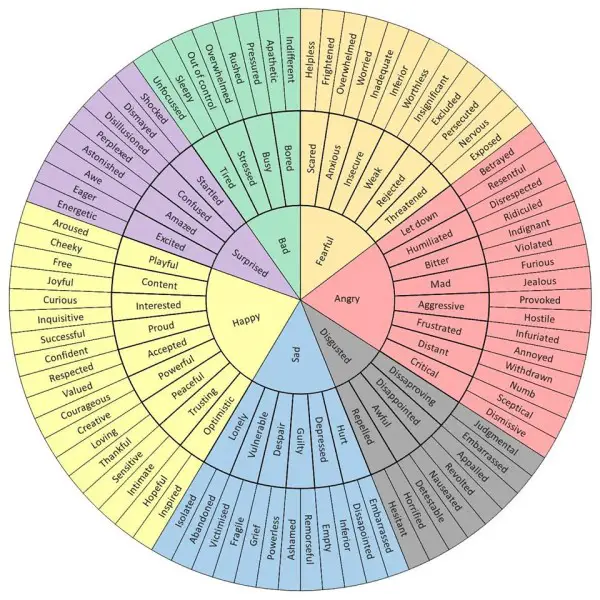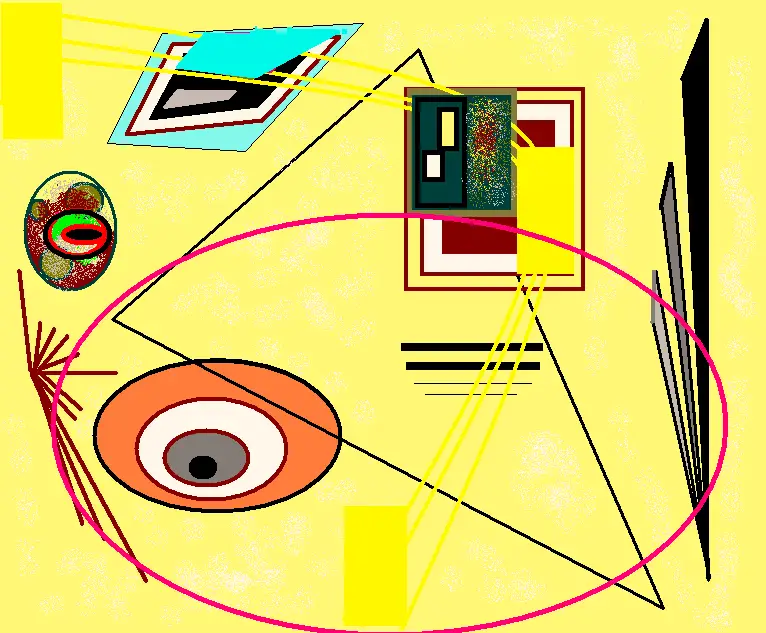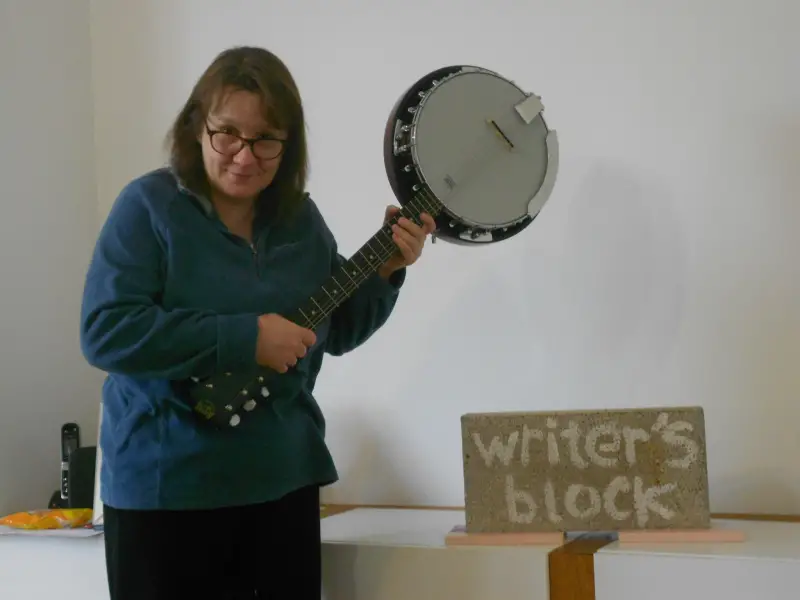40 Songwriting Tips For Beating Writer's Block

When you think your creativity has deserted you - a little spark might be all you need. A new instrument, an unexpected rythm or an unfamiliar genre has an uncanny habit of rekindling imagination. Here's 40 practical ideas to help you back into the zone and help push your project forward.
What is Writer's Block ?
According to Wikipedia, 'Writer's block is a condition, primarily associated with writing, in which an author loses the ability to produce new work or experiences a creative slowdown. ... The condition ranges from difficulty in coming up with original ideas to being unable to produce a work for years.'
Source: https://en.wikipedia.org/Writer's_block
A far from comprehensive explanation. The point is that there's a broad spectrum of personal torment to go around. The bad news is that there is no silver bullet that'll fix all things for all people. So dip in and take what what fits your personal situation.
(Section A, The Songwriter's Mind.)
1. Get your mind right, get fuelled up.
The number one issue with writer's block is the resistance created in our own minds. If we're unsure about anything in life, the primitive portion of our brain will produce a cascade of subtle signals designed to ensure we avoid the uncertainty. So it makes sense to get our minds in the best shape they can be to embrace the creative process and avoid that threat of resistance.
Ideally, we'd be jumping out of bed bubbling with ideas for the next verse. Alas, that enthusiasm is as fickle as a snowflake and we're left dreading and fearful, hitting the wall of doubt in every direction. The secret to beating writer's block is accepting that enthusiasm and confidence is fleeting. It comes and goes like weather. Most of the time you'll be holding on for grim death just to keep your art afloat, never mind going the right direction.
I know this is unwelcome reading but this point can't be overstated. It's the small regular contributions which keep us moving when every bone in our body says 'no.' These are the actions and this is the mindset we must adopt.
The good news, and it is very good news, is that all professionals goes through this and most find that good habits get minds in the right shape and all but eliminate writer's block.
2. Listen to other people's music, use it as a reference.
 If you're stuck at the beginning of a project, immersing yourself in other's music will almost always kickstart your creativity. Especially if what you're listening to is something new.
If you're stuck at the beginning of a project, immersing yourself in other's music will almost always kickstart your creativity. Especially if what you're listening to is something new.
I'm always amazed by how many times I've turned up at a music festival, not even wanting to be there, only attending because I bought a ticket. Then suddenly, from no-where a voice or a sound captivates me. It sweeps away all the rubbish in my mind and leaves it open for new perspectives.
This can also happen at a concert or with buskers in the street. It's one of those 'power of music things.' And it is probably the reason you're here so don't under-estimate it. Seek out new music. Remind your mind why it needs nice noises.
If you can't get out then listen to a different genre on the radio, hear with new ears and be inspired.
3. Do exercise, move your body.
To be creative, our brains need the right chemicals in the right proportions and a whole lot of oxygen. That's brain fuel and if you keep putting garbage in, we know where that leads.
It's a fact that exercise produces 'feel good' chemicals in the form of endorphins which help us process information quickly and think clearly. Anything from dancing to digging will help clear away negative baggage and release the reigns of writer's block.
Regular daily exercise should be part of your routine and is a good habit to adopt. Again, it's about small contributions on a regular basis. Exercise will definitely improve your creativity and smooth out those bouts of mental resistance.
4. Mow the lawn, vacuum the carpet, listen to traffic, listen to birds.
For some reason, our minds love to join in with other noises. It doesn't have to be singing either. Any noise which is subjective enough to be interpreted can be processed into a sound which our brains feel we should contribute to. How often have you found yourself humming along with the carpet cleaner ?
When I was a child I had a pet canary. It never sang a note until my mum switched on the electric vacuum cleaner. The canary would then sing his heart out. And I mean sing his heart out. He'd continue for a few minutes after the vacuum had stopped, then fall into silence.
There's obviously some evolutionary or social psychology going on which we can use to our advantage. In short, anything loud and droning and monotonous stimulates our brains to reciprocate with music of our own.
Personally, I've written many a decent song to the drone of a lawn mower. You can think I'm bonkers all you like, I know that it works. It works because it releases us from the role we think ought to adopt as song writers. There is no resistance, how can there be ? We're just doing what comes naturally.
5. Emotional compass.
 Image courtesy of Onesimusix
Songs are always about emotions. Doesn't matter if the story is about dogs, dairymaids or dandelions; the song is actually about some emotion. Song is the sound of emotions, it gives them form, both high and low.
Image courtesy of Onesimusix
Songs are always about emotions. Doesn't matter if the story is about dogs, dairymaids or dandelions; the song is actually about some emotion. Song is the sound of emotions, it gives them form, both high and low.
If you can buy into the emotions of your characters, you'll care about them and their plight. You'll want to stick up for them whether they are right or wrong, good or evil. You'll have no trouble talking about their past and their future and their hopes and dreams. If you really really love them, you'll even tell lies for them.
You'll tell lies to such an extent that you won't even notice your writer's block because you'll be absorbed by your creation. The parts of your mind which want food and drink and rest will have to give way to the overriding urge to give life to your characters and to enrich the world in which they live.
Understand the emotions of the characters in your songs, develop their attitudes and you'll never have writer's block because there'll be neither space nor time for it.
6. Stop trying to enjoy it.
The dumbest question you can ask yourself is 'am I really enjoying this ? ' It's like asking, 'why is that joke so funny ?' The reason these are both dumb questions is because as soon as we begin to analyse our emotional investment in something we immediately find it makes no sense. Not only is the joke no longer funny but us laughing at it also seems dumb.
This happens because the parts of our brain which do the analysing are not the same as those which make us laugh. The analysing modules have no sense of humour; you might as well tell your joke to a tree, you'll get no reaction.
So in asking yourself if you're enjoying your song writing, the answer will always be 'no.' It will always, always be 'no' because, like with the joke, the part of your brain doing the analysing won't understand your emotional involvement in it. It won't be able to reason why you care. So don't go there, OK ?
7. Don't worry about not believing.
It's demoralising and devastating to try to continue doing something which we believe is pointless. Yet, on the other hand. When we know were 'making progress' and we're 'doing the right thing' and we'll be 'justly rewarded,' we get a different feeling altogether.
The thing is, both these scenarios are imaginary and bare no relationship to what is actually happening or may happen. The key thing here is to understand that 'making progress' can sometimes be dull, difficult and downright monotonous. Mountain climbers can get stuck for hours or days trying to ascend a few feet. Construction workers are forever uncovering problems which are difficult and dangerous to solve. Life is peaks and troughs. Writer's block comes and goes.
The key is to stop putting all your hopes into what you believe, it takes to much effort. Save your energy for solving the problems in front of you. Get your head around the fact that when it's a grind, when it's one foot in front of the other, day in, day out; these are times you're really making progress because these are times when most of us give up.
Belief is fine for fairies and Fondabeefs but it doesn't make them real.
8. Go,Go,Go. Go into your past, or your future, go into another room or building or place.
Cheesy, huh ? Outstanding songs can be written about the most mundane experiences. The reason for this is because people's lives are mostly mundane and to hear everyday stuff dramatised sucks audiences in as it shines new perspective on their lot and shows that you totally get it.
In your past or your dreams about your future or even in the next room there are stories you could tell. And who better to tell them ? Because you are emotionally involved, you'll be able to shine a light on emotions and attitudes and quirks of human nature which are ordinarily brilliant. Take the line 'Woman walks into a room.' You can go anywhere with this. Why did she walk in ? Had she forgotten something ? What was she expecting ?
The trick is to see past or beyond or without your current constraints. By putting your head into another environment, it causes your brain to reset itself and this offers up opportunities for new thinking. You know this is true because when you walk through a door, you often forget why you're there.
9. Get philosophical.
Song can be considered akin to putting life under a microscope. In the melody and rhythm we see connections and dependence, attraction and revulsion. We also get the chance to summarise events into a neat little package of insight called knowledge.
Best of all, as writers we get to hold judgement over our characters' dubious relationships and their shameful antics in the bedroom. We can pour scorn on their weakness or revel in it. Basically, in a song we can justify anything at all because the premiss of any song is our susceptibility to our emotions. This is great fun, it allows us to be human, bad human or good. Anything goes and it's all perfectly justified because it's a song.
Better still. As song writers we can judge society and the human race. We can can say what we think about politics and governments and so called leaders and we can annihilate them with a single phrase.
We can also offer comfort and advice to millions. Especially when we move away from love songs and into other subjects. There's massive potential for philosophy in song, and if you care about something you will write freely and with enthusiasm. So what do you care about ? Which wrongs could you right with a single phrase ?
10. Imagine a specific person in the audience.
 Image courtesy of Genessa Panainte
This is a great one. If you have a potential partner to impress or a friend or another musician. Imagine how you'll feel when they've heard your current project. Picture them coming up to you reaching out whilst mopping away the tears or smiling with squinted eyes.
Image courtesy of Genessa Panainte
This is a great one. If you have a potential partner to impress or a friend or another musician. Imagine how you'll feel when they've heard your current project. Picture them coming up to you reaching out whilst mopping away the tears or smiling with squinted eyes.
Better still, is the song about them or for them ? It will increase your motivation several fold if you write about some-one you know. And, providing they don't think you're a jerk, they will love you for it.
The key here is something you'll return to time and time again in your writing and it's this. Having an emotional connection with your characters will dissolve any resistance you have to writing. What more, you'll enjoy every minute of it.
11. Forget Perfectionism - Write fast n trashy.
So you're there with your instrument and no matter what you do, nothing sounds right. The words don't fit, the accompaniment is boring, you can't settle on a rhythm. No problem.
Stick to what you have. As awful as it is. Be proud of its disjointed lyrics with missing words. Treat them as part of the art. Where there are words missing, insert 'la la' until you think of something better. Pick the first item you become aware of in your room and make a load of nonsense around it. Such as, 'the window is the wrong colour and doesn't show me where the bathroom is.' That will do for now, you may even get to like it.
When it comes to chord progressions, that's a bit harder to do badly. But seriously, if you sing it with 100% attitude and pretend to believe in what you're doing; you can even convince your self. By assuming it's 'alternative or arty' you'll be surprised at what come out.
If none of this is working for you, use someone else's tune and reverse the chords, it's worth a shot. But don't infringe their copyright.
12. Stop waiting for the right time.
Because of resistance, we all tend to wait to feel better about getting to work. This is completely the wrong approach. It's wrong because we simply feed the resistance and diminish our ability to grapple with our fears.
Get into the habit of routine even though it seems mundane and a load of work. It's far more productive if you only try to engage your mind than it is to ignore it. If you only manage thirty seconds of music each day, by the end of the week you'll have the best part of a song. Also, I guarantee that one of those sessions will suddenly spark a mini explosion of creativity.
Fix a time when you're at your most creative and stick to it. For me it's early in the morning, after exercise. For you it might be different but get into the habit of routine.
13. Stop looking for excuses.
When your brain's limbic system sees writing as a threat, your cerebral cortex will have to carry the can and make an excuse for your bad behaviour. It's very good at it too. It will convince you that you have a real physical issue which prevents you working. Between them, these two brain modules produce physical symptoms and believable, reasoned arguments for not working.
Try to stop your limbic system taking control of the agenda like this. Develop a habit of rejecting excuses and coax your limbic lizard brain into accepting that writing won't be as dangerous as it thinks. Understand that your both your lizard brain and your cerebral cortex are tricky and manipulative. They won't give up and they'll dream up all sort of blocks to stop you writing. Don't take any nonsense from them and recognize that what ever trick they try to pull, their best intentions are inappropriate when it comes to work.
14. Understand your fear.
You'll probably have guessed that I've had my share writer's block. I've also learned to live with it. But occasionally it still strikes fear into my very soul and I always make it my business to understand why. Yesterday, it was because a little voice told me I'm not that good a musician. It convinced me I'd no business trying to write complicated passages and sooner or later I'd get 'found out.' I feared being exposed as a fraud.
Just last month, I felt society was not interested in anything I had to say and would never reward me. I feared being ignored. But worse, I feared I was wasting my time. Making a fool of myself. I could go on but you get the picture.
You can spend a lifetime in therapy trying to make sense of this stuff. Let me save you the trouble. None of us had a perfect upbringing and we all have hang ups. As a result, we also have tons of subroutines in our minds to help us cope with the ridiculous complexity of our society. Those subroutines are there to keep us safe. The most effective way to keep us safe is to make us scared. That's how it works. Understand your fear - then move on.
(Section B, Your Characters' World.)
15. Make your character flawed.
An established method for making your projects come alive is to give your character a serious hang up or behavioural issue. It ties in very well with song because such issues usually have an emotional undercurrent.
As a writer, it's far easier and more fun if you're writing about a wack job head case who loses their job because they punched the boss. A reliable, steady Eddy will only make you want to write about him if he suddenly loses it over a kitten or a cuddly toy.
The key word here is vulnerability. It's a beautiful and believable human trait which song illustrates very well. It so easy to write about because chorus and verse allow us to compare and contrast wise and unwise behaviour.
16. Twist and twist and twist again.
If you have a boring story about a boring character, your emotional investment will be tested. That goes for your accompaniment too. To protect your own sanity, twist your tale into an unexpected place. For example: if Johnnie loves Joanne, introduce an ex lover or kill one of them off. But don't stop there. Kill the other one in the last verse or have the ex lover be a sibling. Make it messy, like real life.
If the subject of your song is you, twist the facts, change your attitude, it doesn't have to be the absolute truth.
Get the police involved, have the gun go off by mistake, make frogs fall from the sky, make it all happen on the same day as the local county fair or on Murial's wedding day. And remember, all these events are possible hooks, metaphors and choruses.
Once again, this is all about losing yourself in your characters' world and understanding their attitudes, and hard luck.
17. Look at art.
 Artists are big on telling stories. It saves them having to write a thousand words, so they say.
Artists are big on telling stories. It saves them having to write a thousand words, so they say.
For us, images can be a veritable feast of ideas. Big emotional disasters with fear writ large on gnarled faces. Horses snarling, dogs getting all worked up. Or trees wafting gently in the breeze just crying out to be played on an acoustic guitar. Now you're getting it.
All these seemingly run-of-the-mill pictures can really ignite our imagination because they have colour and form. Unlike the grey flat people in my mind, they seem real and alive. The secret here is to forget that you hate art and all the pretence and snobbery which feeds off it. The artist was an artist just like you, they saw what you want to see, let them show you. It's definitely worth a shot.
18. Write from the perspective of evil.
Once you accept that taking an interest in evil is not evil, it becomes a fascinating subject. Why on earth would anyone go around being horrible to other people and making enemies ? Think about it, it makes no sense, but people do it all the time.
What motivates their actions ? Is there some 'greater good ?' Some twisted philosophy or religion ? Were they forced into it by fear or by ego or poverty ? Unless they are psychopaths, evil people usually have a flaw or weakness or have had bad luck all their lives. Explaining their actions can be meat and drink for a songwriter and guess what ?
Evil characters are far more interesting to write about because musicians are never evil. It's not in the profile, even hard rocking angry types are usually very nice people. Again, this is an exercise in keeping you emotionally invested in your characters.
19. Understand your character's motivations, emotions, attitudes.
Following on from the above. Interrogate your characters. Ask them why they commit crimes or love with such a passion that they're willing to die for it.
Once you're inside their thinking, I can assure you, you're not going to bothered by writer's block because you'll be intrigued and fascinated and entertained by human nature. It'll be like a book you can't put down and will lead you to write believable and brilliant songs.
Ask why they hit their boss ? How did they feel afterwards ? How do they sleep at night ? Ask why Joanne loves Johnnie when he's a loser and a bum ? What does he do for her which makes no sense to outsiders ?
This is how you stay in tune with your art, keep your imagination alive and stop yourself getting stuck.
20. Build your own country, empire, world, universe.
The world sucks. That's why we write songs about it. OK, there are times when we write happy songs but mostly it sucks.
So in your songs, create imaginary worlds where the sky is pink and people have windows for eyes and if you open one you can see their soul. But each soul is not what you expect to find...need I go on.
Getting past writer's block is easy when you're engaged. Once you buy into your own creations you'll be excited again. Providing you're being realistic and believable about emotions and attitudes, you and your listeners will be totally hooked.
But don't stop with a world, why not create a universe where the laws of physics are warped or time can be speeded up by the government so they can mess with your tax return, or send you back in time as punishment ?
21. Read Alice in Wonderland.
 Image courtesy of Jan Kasula
No, watching a film version is not the same. You need to use your own imagination to get it working again.
Image courtesy of Jan Kasula
No, watching a film version is not the same. You need to use your own imagination to get it working again.
Alice's adventure is exactly the kind of tale that will reignite your creative flame. The characters are completely bonkers. And although they're totally unbelievable when taken out of context, they still have human traits, that is to say, emotions, attitudes, and motivations. That's why they make literary sense.
The aspirations of everyone in Alice in Wonderland are not much different than people today. Hope, fear, intolerance, inequality, stupidity. If you can't be inspired by Alice there are plenty of other classics to go at. Plenty of other worlds you could be tickled and terrified by.
22. Watch 'The Simpsons.'
It doesn't have to be 'The Simpsons,' any cartoon where ridiculous is the norm will do the trick.
If you're stuck in a rut with writer's block, you can find inspiration from cartoons. Because cartoon characters are always over dramatised, they're easy to relate to. You can identify their hang ups and attitudes just by looking at em. Not only that but they usually stick to the script when it comes to portraying themselves, their personalities are just too big to be messed with.
Ask yourself who's attitudes and hang ups you could borrow for your song ? There's literally hundreds to choose from and you'll have an image, and lots of scenes to mull over, someone's bound to fire your imagination.
(Section C, Music)
23. Change the rhythm.
If you're bored with your song or it's just not happening, then try supercharging the rhythm. Change the time signature and make it faster, much faster. Get some low toms or djembe in there, something low and tribal that won't get in the way of the vocal part.
You could alter just one section such as the chorus or the bridge going to a different rhythm or the whole piece.
You may well find you end up in a different genre and you have to drop some words because there's no longer time for them. But it'll force you to focus on what really matters in your message.
You could even drop all your accompaniment and just go with the new beat. Doesn't matter how messed up it sounds, try it several times over until you're sure it's a dead loss before you give up on it.
24. Use a known chord sequence as template.
The reason you're stuck could be that you and your song simply got off on the wrong foot. I've done this several times, found a few chords which seem really interesting. But when I put a melody over them, it just doesn't work, even when music theory says it should.
Luckily, well known sequences don't need to sound cliched. 1 5 6minor 4 and 1 6minor 4 5 or 1 4 1 5 are just a few progressions which keep re-appearing and charming audiences the world over. There's a good reason for this. And that is they don't force your melody into a cul-de-sac with nowhere to go. They allow you to get out of a sticky place with grace and dignity.
Unusual sequences can work great on their own but have a habit of exerting authority which makes you feel you have to escape.
25. Use a known structure as a template.
If you prefer order to chaos, then a known form or structure might eliminate your writer's block.
Intro - Verse - PreChorus - Chorus - Verse - PreChorus - Chorus - Bridge - Instrumental - Verse - Chorus- Outro.
You may have seen something similar to the above example: you assign four bars to each section and fill those bars with chords and words. Whether you can operate like this will depend on how your mind works, for some, it's a bit formulaic. The odd thing is that you might normally write from a completely different perspective, for example: a story line, and still end up with the same structure. You could start with this exact structure and fill it with the same story line as the other guy.
The trick to getting over writer's block is to make the element you're struggling with as foolproof as possible, try it.
26. Try writing for a different genre.
 Image courtesy of Nate Greno
This is a great one. Your writer's block could be caused because you're all tied up with one particular style and the expectations which come with it.
Image courtesy of Nate Greno
This is a great one. Your writer's block could be caused because you're all tied up with one particular style and the expectations which come with it.
Let your hair down, turn the volume up ( or down ) and let the song do what it wants to. Imagine another performer singing it. Imagine how Elvis or Madonna or ACDC or Beyonce would perform it. Put it somewhere it has absolutely no business being. You can always reign it in later if you need to.
Tip, a new genre means you might need a new rhythm, different instruments, but it doesn't have to. Mostly you just need a different attitude.
27. Try to imagine an instrumental motif for the emotion, character, attitude.
Beethoven probably wasn't the first to use motifs to represent ideas, but he's certainly the best known example.
The four note motif which develops through his 5th symphony can mean anything you want it to, although it's believed to be a symbol of war, fear, terror. The idea of having a mini tune represent a person or a particular thing has found a new home in cinema and video games.
Listen to Beethoven's 5th to see how it changes, how it breeds. Then try something similar to represent the idea you're working on. You won't have to develop it in the same way, one or two version will be enough for a song. I'll admit, this is a pretty whacky technique and one more suited to film a TV than song. But remember a good motif can make a brilliant hook, especially in rock, blues or jazz.
28. Pick up a different instrument.
Following on from the last two, your block might be caused by your instrument, they all have limitations you know ? Even if you're a dreadful on the new instrument, have a go because its strengths will become immediately clear and it'll change the sound of anything you're working on.
And because you're no expert, you'll be forced to keep things simple and you won't be expecting fireworks in the accompaniment. Like I said above, you'll probably end up in a different genre with a different rhythm.
Try something percussive too - it's very liberating.
(Section d, Words.)
29. Write a song called 'Writer's Block.'
This is another great one. You're never gonna play it anyone, right ? So I strongly suggest you try this and really let go.
Get all that anger and pent up frustration out of you body and into the room. You can swear and profanicate till the lights go out and you'll be doing yourself a great deal of good; a kind of music therapy for the musician. Make up words, scream and shout and blame the walls, just get it out. The more ridiculous the better.
Make it fast tempo, major key and feisty with bags of attitude. If you really want to ridicule your writer's block, make it a dance tune or a comedy tune. Personally, I just like to make a lot of noise.
30. Rhyme.
Songs which simply serve their own rhymes can sound cheap and nasty. Especially if the underlying message is belittled by it. But rhyme is very important in song and a good balance between rhyme and story pack real punch. It's also great fun for us writers to mess around with rhymes just for our own entertainment.
With a rhyming dictionary or an online rhyming tool , you can now create pretty sophisticated rhymes with little effort. Sometimes, it's a good idea to go for the cheap and nasty option just to fill the page so that you can focus on your accompaniment or the story or simply for your own sanity.
It's surprising how a string of similar sounding sonotations can steady and sooth a stuttering song. ( Yes, I know ). Seriously though, rhymes are freely available and make us sound smarter than we are. They are great for our egos and sense of achievement. Play around with them, get fast and nasty, you may surprise yourself.
31. Borrow from Shakespeare.
 Look, Shakespeare isn't everybody's cup of tea, I accept that. But some of the things he did are useful so listen up.
Look, Shakespeare isn't everybody's cup of tea, I accept that. But some of the things he did are useful so listen up.
I'm talking about bending the rules of language. For Example: phrases such as 'I tabled my proposal' have a certain elegance to them. But are grammatically incorrect because 'tabled' is not really a verb. It was made up by Shakespeare using a noun as a verb, very clever.
It's clever because it packs a lot more information into a short space. It's more precise and descriptive than 'I offered my proposal.' It makes it more believable.
Of course, on the other hand, he used a lot of 'thou which hath this table wrought' kind of stuff which is too waffley and self indulgent for most of us.
The point is that bending the rules must be OK because the most respected writer of the English Language did it all the time. And he did it with elegance and grace. You can too.
32. Use your local dialect.
Local dialects and accents give us much more personal investment in our work. It makes it much easier to write because we're not constrained by expectations which might be intimidating.
It also allows us to get down into the detail of things which are irrelevant to outsiders but extremely important to us.
A few examples might be: local food, dances, special places, local personalities, local politics. Our connection to these is much stronger and because we are all experts upon our own communities, writing about them is usually much easier and emotions are much easy to illustrate.
Also, our accents and dialects make us stand out from the crowd. So be proud and speak your own language.
Just for a bit of fun, you could try singing internationally known songs in your own accent, it usually raises a smile.
33. Borrow from old poetry books.
This is the easiest, cheapest and most efficient way of writing outstanding lyrics and never having to deal with writer's block again. You can do it with Shakespeare or any text you can find, though it's easier if the work is out of copyright.
Open the page on a passage you like and sing it. You'll have to do this quite a few times before you get your head around it, especially if it's old and is written in iambic pentameter ( 5 alternatively stressed syllables per line ). But it's much quicker than writing it yourself.
Once you can sing it, put some chords under it. Like I said, if it's old and English, you might struggle with the rhythm at first. But believe me, once you get it, you'll write outstanding some songs.
Even better, use poetry from your own region. Poets usually love musician's taking their ideas further. If the work is not out of copyright, ask if you can use it.
34. Extended Metaphor.
I've already mentioned several times the importance of just hammering out fast and trashy words which make no sense, simply for the sake of being productive. Extended Metaphor is where your phrases makes sense, but you keep going on and on and about the same thing using your metaphor, rather actual events to describe it. It's sort half way between acceptable story and unconnected dribble. In literal terms it's often seen as quite an advanced technique because the message is elusive or veiled or relational. If you can get your head around it, it's great fun and fuels imagination.
If you have writer's block, it can be helpful to play with ideas like this because it stimulates creativity. For example: a lover affair ending could be described by the sinking of a ship, and often is. A death could be described by a falling leaf. And writer's block could be described by a car which won't start or a piano which won't play or a guitar amp which won't work.
The great thing about Extended Metaphor is you can be as wacky is you like and in a song, you'll always get away with it.
35. But it makes no sense - it's perfect !
Following on from the last section. Songs don't have to make sense so don't worry about it.
If you're writing to a brief or you have some narrative to convey, as in a musical, then yes, there are certain details that need to add up, but mostly, it doesn't matter.
The beauty of song is not the logical account of facts but its ability to illustrate the vague and deeply personal nature of emotions. Most of which is in the tune and the accompaniment, not the words.
So don't get stuck with words because it's not worth the worry. How often do find yourself dancing or singing along to a foreign language ?
36. Make up a language.
If you know a few words of a another language, it's always entertaining to drop a few in, especially for a refrain or chorus. And if that's not in your box of tools, a good way to blow off the cobwebs of self expression is make up you own language.
This is super creative and really gets the juices flowing. 'Supercalifragilisticexpialidocious' ring any bells ? It describes an emotion perfectly, better than the boring words in the boring dictionary.
Further still, use the voice simply as an instrument. Karl Jenkins' 'Adiemus' is an example of this. Syllables are used just because they feel good to sing and we all know that if something's good to sing, we'll sing it again. Another version of the same thing 'scat' singing used in the jazz genre.
The above are labelled 'nonsense' songs by those in know, and those with no imagination. Don't believe a word of it. They make perfect sense to any body who has a heart and they are great fun to sing because it can mean what you're feeling on that day without changing the words.
37. Repeat one phrase over and over.
Following on from the last paragraph. How many different ways can you sing one phrase ? What about if you speed it up or slow it down and then put more expression into it ? Quite a few, huh ?
This technique is used to great effect in Classical Indian music. It allows you to develop the emotional message and get seriously engaged with it.
This is a brilliant cure for writer's block, you don't have to record it for other people. You just chant your phrase about how you car won't start over and over. I guarantee that you won't be able to do this without elaborating upon how much you hate that car and how you gonna drive it off a cliff as soon as it's fixed. How you would have bought a different car if your boyfriend hadn't try to influence you. Try it for failed romance, dead cats and goldfish.
38. Write what ever comes as prose.
You don't have to write your song as a song or even a poem. Just write the thing out as prose listing events as they happened.
You could go even further. Write your thoughts as a stream of consciousness. This technique provides a great shortcut for someone with writer's block because you don't have to organise your thoughts. Again, it's an exercise in getting something written without worrying about it too much.
David Lodge, Virginia Woolf and David Lodge all provide literary examples of this style. Tori Amos uses it too. You just write phrase as it comes. For Example: 'No words today, just like yesterday and all it's yesterday's. Tormented by a wish to finish just one song for the sake of accomplishment. What brought this task to my attention ? Why must I sit with furrowed brow sucking my teeth for words ? Should I go to the dentist now ?'
39. Draw a mind map
Write the one word or phrase you're gonna use in the center of a large piece of paper and get out your thesaurus. Draw lines to related words and phrases and do the same for those until you have filled your sheet of paper.
This is about connections. Songs are always about connection between emotions and events so this exercise might help you see something enlightening.
You can also do the exact same exercise with a rhyming dictionary, but if you take this approach be sure to add a bit of storyline in their or you'll just finish up with a really cheap sounding trashy song. It still worth a shot though.
40. Resistance v Habit
 Tenacity will trump talent every time. It'll also break down the toughest resistance. So be sure to put aside thirty minutes or an hour each day when you're gonna sit and endure your incompetence. Without a target and no matter how bad it gets, just sit there till the time is up.
Tenacity will trump talent every time. It'll also break down the toughest resistance. So be sure to put aside thirty minutes or an hour each day when you're gonna sit and endure your incompetence. Without a target and no matter how bad it gets, just sit there till the time is up.
If nothing is coming and nothing is working and the only lines you have is 'I've got nothing - this is hopeless - I'm such a loser.' Well then you're writing another song about writer's block. If you do that everyday, in two weeks you have a whole album about how impossible it is to write a whole album !
If you sit there and do nothing but make yourself miserable, use an emotional compass or a thesaurus to explore the word miserable. Make chords and chord progressions which express misery. Don't try and write a song, just make a noise. If you don't want a miserable song, put a lively tune over it, it's the oldest trick in the book and it works too.
I challenge you to sit there and do nothing but revel in your self doubts at set time every day, if you can do that, the part of your brain that's stopping you will think it's won and stop resisting. And the rest of your day, you'll be free.
Good Luck.
